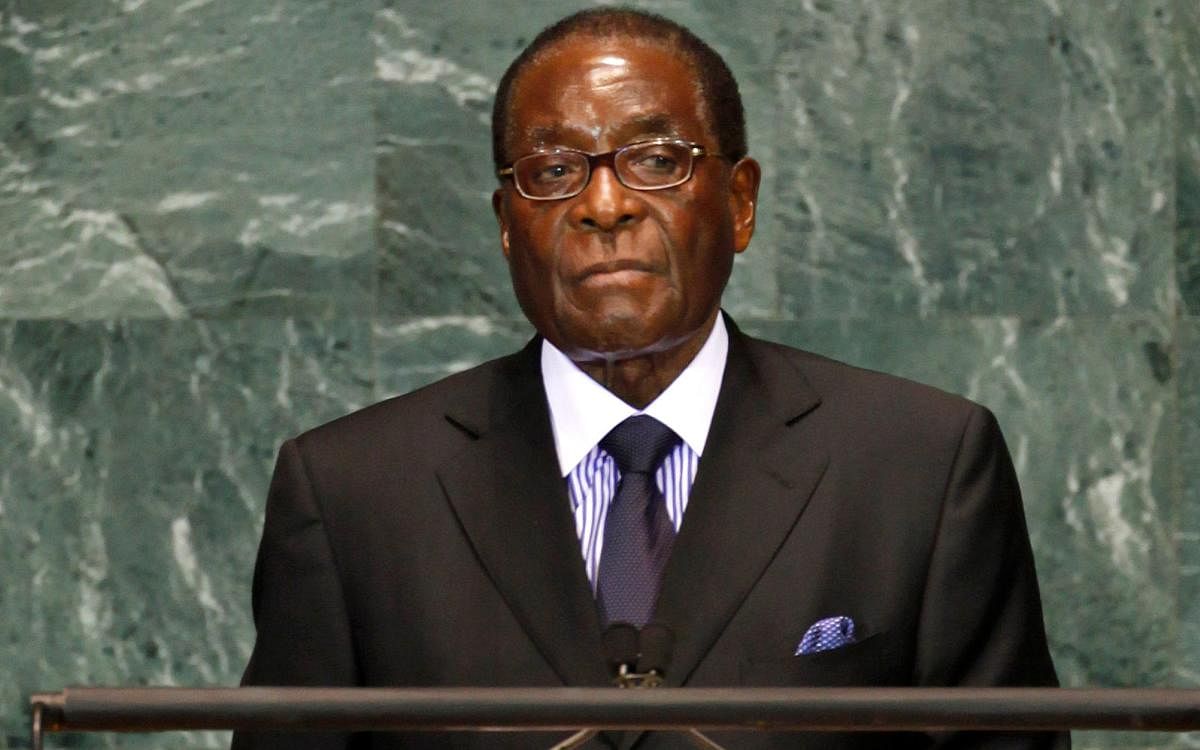
Zimbabweans on Saturday mourned the death of their country's founding father Robert Mugabe but confusion swirled about when his body would be returned from abroad or when he would be buried, two years after he was toppled in a coup.
Mugabe died on Friday aged 95 in Singapore, where he had long received medical treatment.
He was one of the most polarising figures in African history, a giant of national liberation movements on the continent but whose 37-year rule finally ended in ignominy when he was overthrown by his own army in 2017.
President Emmerson Mnangagwa granted Mugabe the status of a national hero in a televised address on Friday, while tributes poured in from leaders from across the continent.
Mugabe's body was initially expected to arrive in South Africa early on Saturday before flying on to Zimbabwe. But there was still no word that the body had left Singapore.
Mnangagwa said on Friday Zimbabwe would be in mourning until Mugabe was buried, but he did not say how many days of mourning there would be or when the burial would take place.
In downtown Harare, most residents said on Saturday that they were saddened by the news of Mugabe's passing since he was their liberator from white colonial rule and had broadened access to education.
"Even now we have livestock we keep in the rural areas because of him, so it's painful to lose our father, our grandfather who helped us to learn and go to school," said Tongai Huni, a fruit vendor, speaking in the local Shona language.
Others were angry that Mugabe had left the economy in a sorry state, with hyper-inflation and mass unemployment.
Margaret Shumba, another resident of the capital, said she had other things to worry about, rather than Mugabe's death. "We are just trying to deal with what he did, the harm that he did."
Nearby, a policeman shook his head as he walked past a row of newspapers bearing pictures of Mugabe's face. "End of an era," read the headline of the Daily News, while the state-run Herald ran a commemorative edition to mark Mugabe's death.
Almost two years after Mugabe was ousted, there has been no let-up in the hardship that Zimbabweans suffer.
Beset by triple-digit inflation, rolling power cuts and shortages of basic goods, the economy is mired in its worst crisis in a decade, while political opponents say a clampdown on dissent by Mnangagwa's government has revived memories of the Mugabe era.